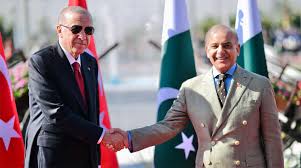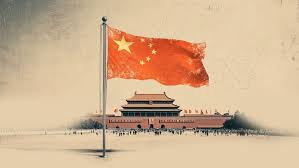EU: Eastern states call for extension of Ukrainian grain ban

Brussels: Poland, Bulgaria, Hungary, Slovakia and Romania have jointly called on the European Union to extend the ban on imports of Ukrainian grain to those five countries beyond its currently planned end date of 15 September.
“We will not open this border. If the European Commission does not extend the ban, we will do it ourselves,” said Polish Prime Minister Mateusz Morawiecki, speaking alongside agriculture ministers from the quintet of eastern member states.
The countries say that their decision – which comes just after Russia pulled out of a deal allowing the export of Ukrainian grain via the Black Sea – is not directed against Ukraine, but rather aims at protecting their own agriculture sector.
Earlier this year, farmers protested that growing exports of Ukrainian grain to and through eastern EU member states during the war was pushing down prices. That led Poland to unilaterally introduce a ban on imports and transit in May, despite EU rules giving Brussels exclusive competence over trade policy.
Soon after, a deal was reached with the European Commission to ban the import of Ukrainian grain to the five eastern member states but with transit through them allowed to continue.
Today, the ministers signed a joint statement underlining the need to extend preventive measures on imports of wheat, maize, rapeseed and sunflower seeds from Ukraine beyond 15 September 2023. The document will be presented at the EU Council of Ministers of Agriculture and Fisheries in Brussels on 25 July 2023.
The quintet added, however, that they want to allow transit to continue, with Poland’s agriculture minister, Robert Telus, arguing that the import ban has actually improved transit to third countries.
“Our actions in defence of the interests of farmers from EU countries are not directed against anyone,” said Telus. “They are a call for reconsideration and for appropriate, much-needed decisions on the part of the European Commission.”
“Our countries are helping [Ukraine] the most among the EU countries,” added Slovak agriculture minister Jozef Bíreš. “We will do everything to ensure that the solidarity corridors place as little burden as possible on the countries through which they pass.”
Following recent falls in the price of certain fruits in Poland, such as raspberries, Morawiecki added that quintet stand ready to extend the ban beyond grain to other groups of products “if there are signs of destabilisation in other agricultural markets”.
“There will be import bans and compensation for farmers. We never leave farmers on their own and this will also be the case this time – in relation to the fruit market, for example,” he said.
Today’s announcement comes just two days after Russia pulled out of a UN-backed deal for safe transit of Ukrainian grain via the Black Sea. That has caused renewed concerns about food shortages in parts of the Middle East and Africa that rely on imports from Ukraine.





